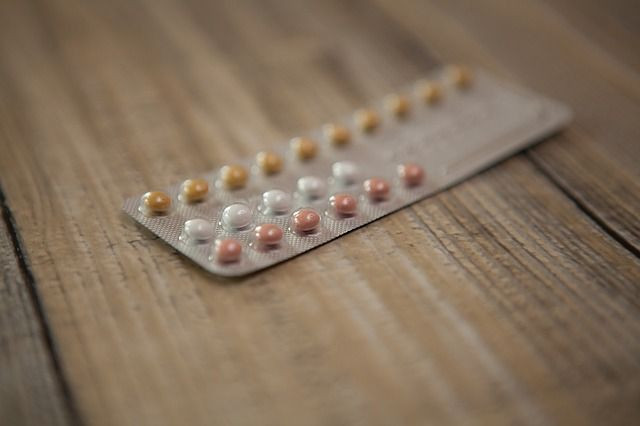Repeated Use Of Morning-After Pill: Plan B Effects On Breast Cancer, Fertility

You're making out with your boyfriend, clothes begin to come off, and before you know it, you've had sex — unprotected. After the heat of the moment wears off, you rush to the pharmacy, grab over-the-counter Plan B One-Step, and swallow the pill to prevent pregnancy.
But what happens if you take Plan B more than once?
Plan B is the most common levonorgestrel-only pill that only contains progestin — a synthetic version of the naturally-occurring hormone progesterone found in some birth control pills. It is designed to prevent pregnancy. The special formulation of hormones should be taken within 3 days (72 hours) of unprotected sex or birth control failure to reduce the risk of pregnancy up to 89 percent, according to Plan B. However, the sooner you take it, the more effective it is. It works by either temporarily stopping the release of an egg from the ovary, preventing fertilization, or preventing a fertilized egg from attaching to the uterus.
Plan B: Short-Term Side Effects
Irregular Periods
Using emergency contraception, like Plan B, comes with short-term effects like painful menstruation and nausea. The pills might lead to unexpected bleeding (which is not dangerous, and should be resolved by your next period, according to Princeton University).
It might also cause your next period to come early or late.
Some women may experience spotting a few days after taking Plan B One-Step. Menstrual bleeding patterns are often irregular among women using progestin only contraception.
A 2010 study comparing levonorgestrel and ulipristal acetate (ella) showed generally similar side effects for the two medications. Approximately 20 percent of women in each group experienced headaches following EC treat; up to 14 percent experienced painful menstruation; and up to 12 percent experienced nausea. Women who took ulipristal acetate had their next period on average 2.1 days later than expected, while women taking levonorgestrel began their next period 1.2 days earlier than expected, but the duration of periods was not affected.
So, what are its long-term effects?
Plan B: Continuous Use
Fertility
A common misconception is that frequent use of Plan B can affect a woman's fertility. However, there are no health risks to using Plan B as much as you need.
"It's not necessarily bad to use as a regular form of birth control because it is simply a higher dose of a regular progestin-only birth control pill," said gynecologist Diana Hoppe to Shape Magazine.
Moreover, "oral emergency contraception may be used more than once, even within the same menstrual cycle" according to the American Congress of Obstetricians and Gynecologists (ACOG).
Simply put, there's no reason to believe it would have any effect on fertility, unless possibly if you begin trying to become pregnant immediately after taking the pill. There are no irreversible effects on fertility following exposures to levonorgestrel or progestins in general.
Moreover, the biggest risk of taking Plan B multiple times is an eventual unintended pregnancy. Plan B prevents pregnancy about 75 percent of the time if no other birth control pill was used, compared to the birth control pill or IUD that are around 98 or 99 percent effective, respectively.
Breast Cancer
There are two types of birth control pills available in the U.S. — oral contraceptives that contain man-made versions of estrogen and progesterone, and the mini pill, which only contains progestin. Naturally occurring estrogen and progesterone can influence the development and growth of some cancers, according to the National Cancer Institute.
Therefore, because some birth control pills contain female hormones, researchers are interested in establishing whether there is any link between these widely use contraceptives and cancer risk.
In 2005, the World Health Organization (WHO) officially classified oral contraceptives as a Class 1 carcinogen. Plan B is composed of levonorgestrel, which is a potent progestin found in some of today’s birth control pills.
A 2006 study published in the Mayo Clinic Proceedings noted that taking the birth control pill before pregnancy results in a 44 percent increased risk of developing breast cancer prior to age 50. The study analysis noted that 21 out of 23 retrospective studies have shown an increased risk of breast cancer in women who took oral contraceptives prior to pregnancy.
On the other hand, oral contraceptive use has consistently been found to be linked to a reduced risk of ovarian cancer. In a previous study, researchers found that the longer a woman used oral contraceptives, the more her risk of ovarian cancer decreased. The risk decreased by 10 to 12 percent after 1 year of use; approximately 50 percent after 5 years of use.
The research regarding oral contraceptives and cancer risks remains inconsistent and still warrants further research.
The Consensus
Plan B is an excellent alternative as an emergency contraception when preventing unwanted pregnancies. However, it’s not designed to be used as a regular form of contraception.Taking Plan B twice in a couple of months won’t do much harm.
Although docs agree there’s no clear danger from taking Plan B more than once or twice, it’s not recommended as a replacement for regular birth control.
"If someone is having sex even just three to four times a month, you're still talking about a couple hundred dollars a month," said Streicher.
Talk to your gynecologist for a healthier everyday alternative for safe sex.



























